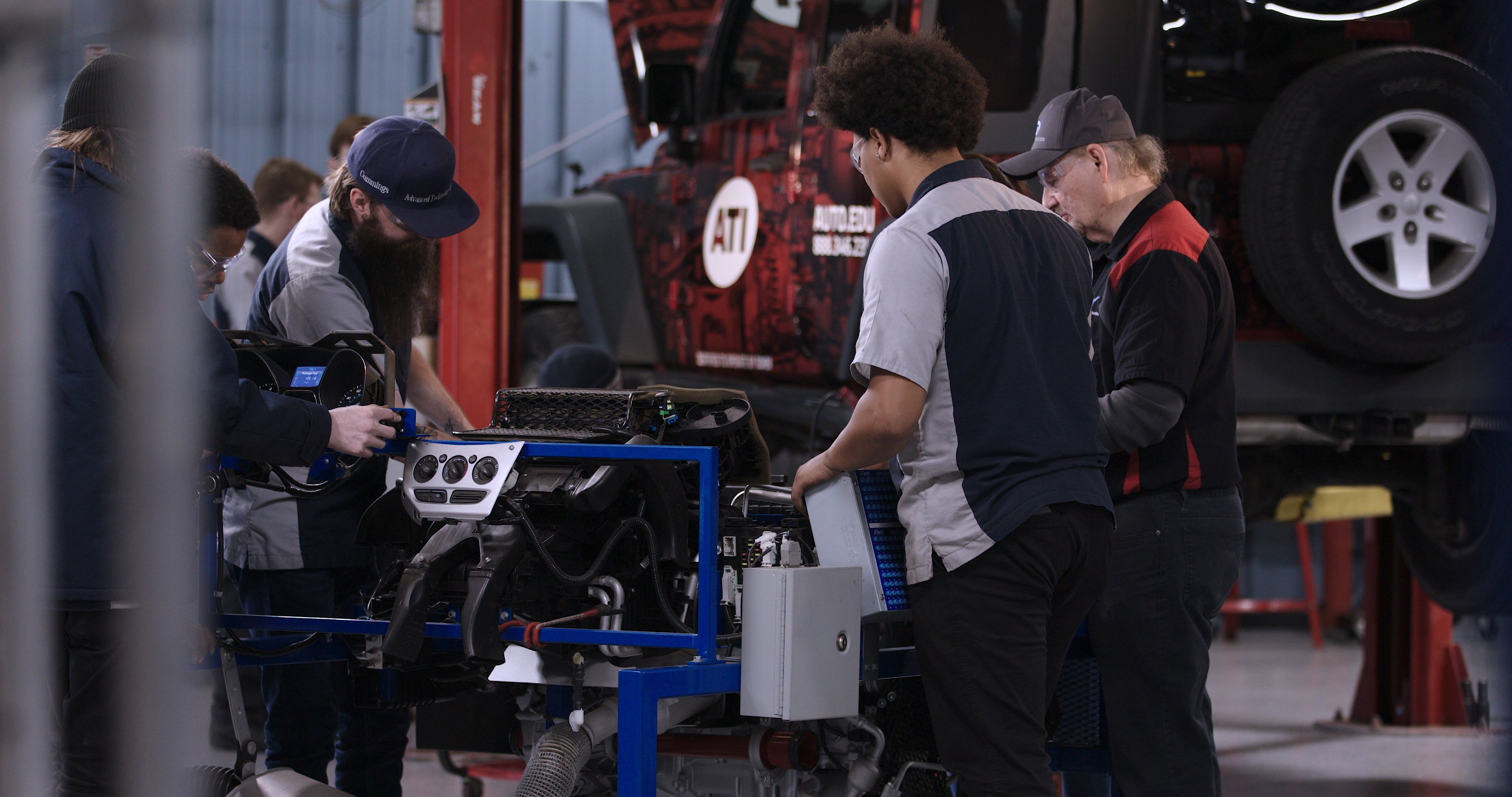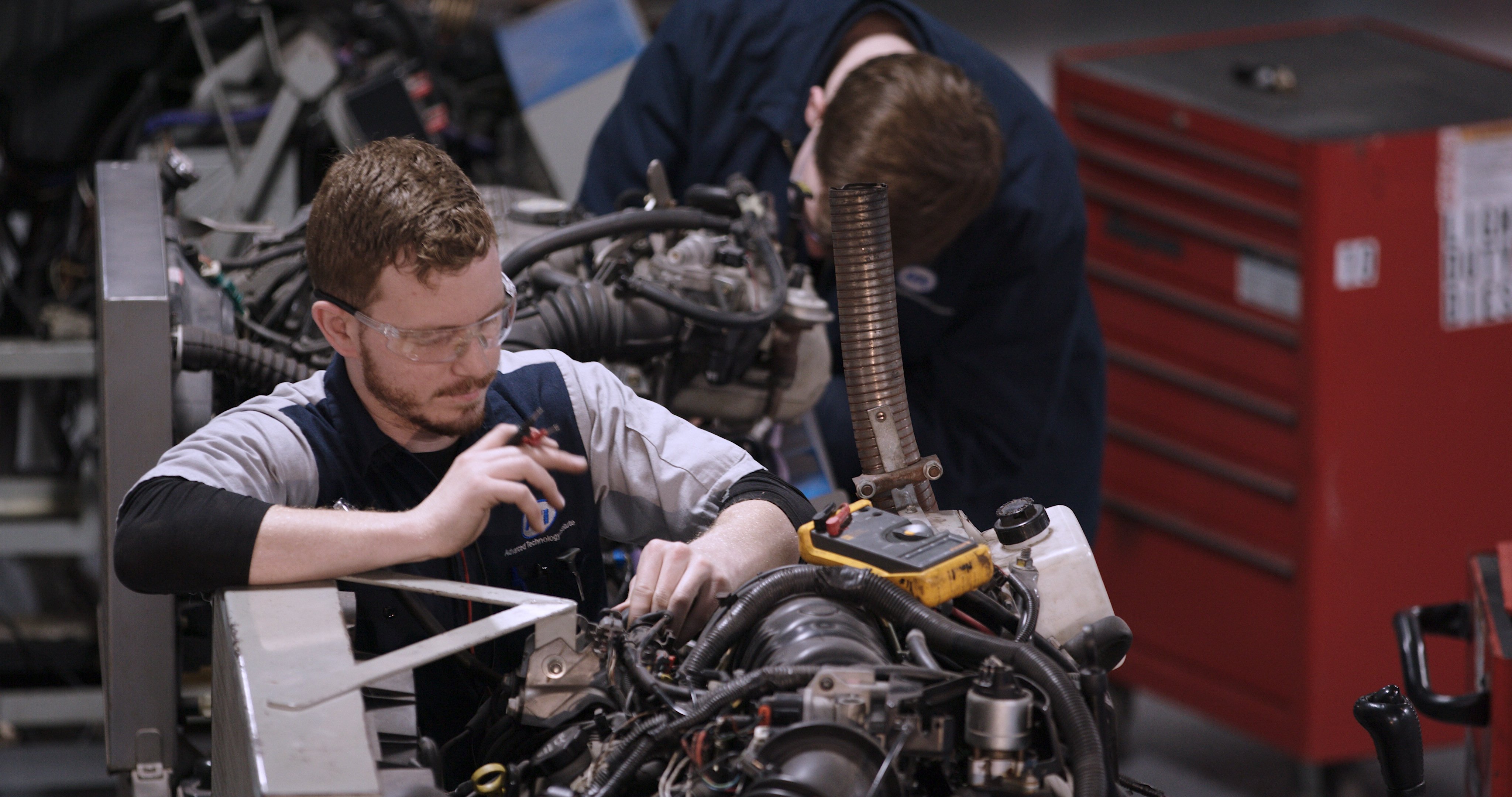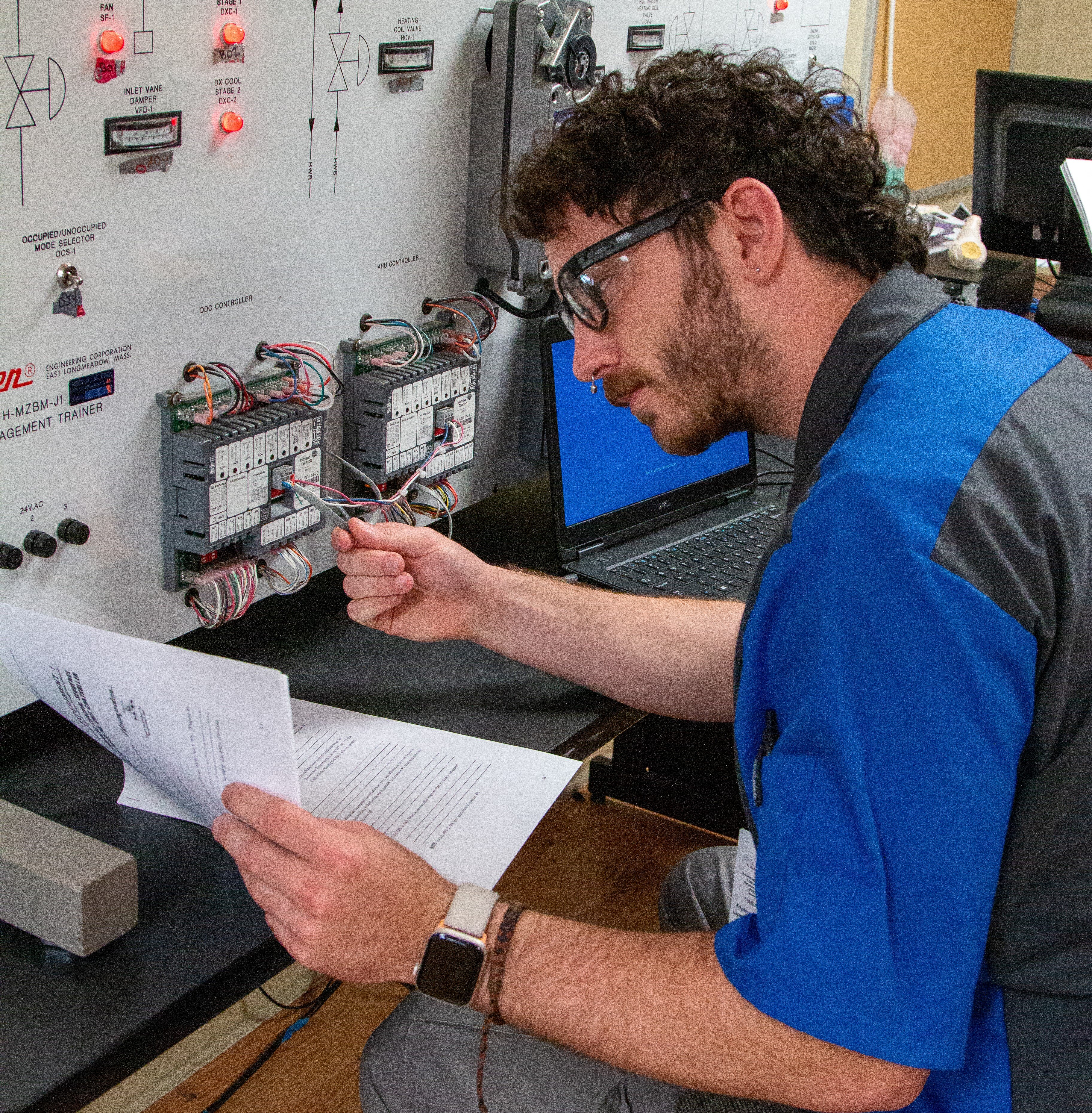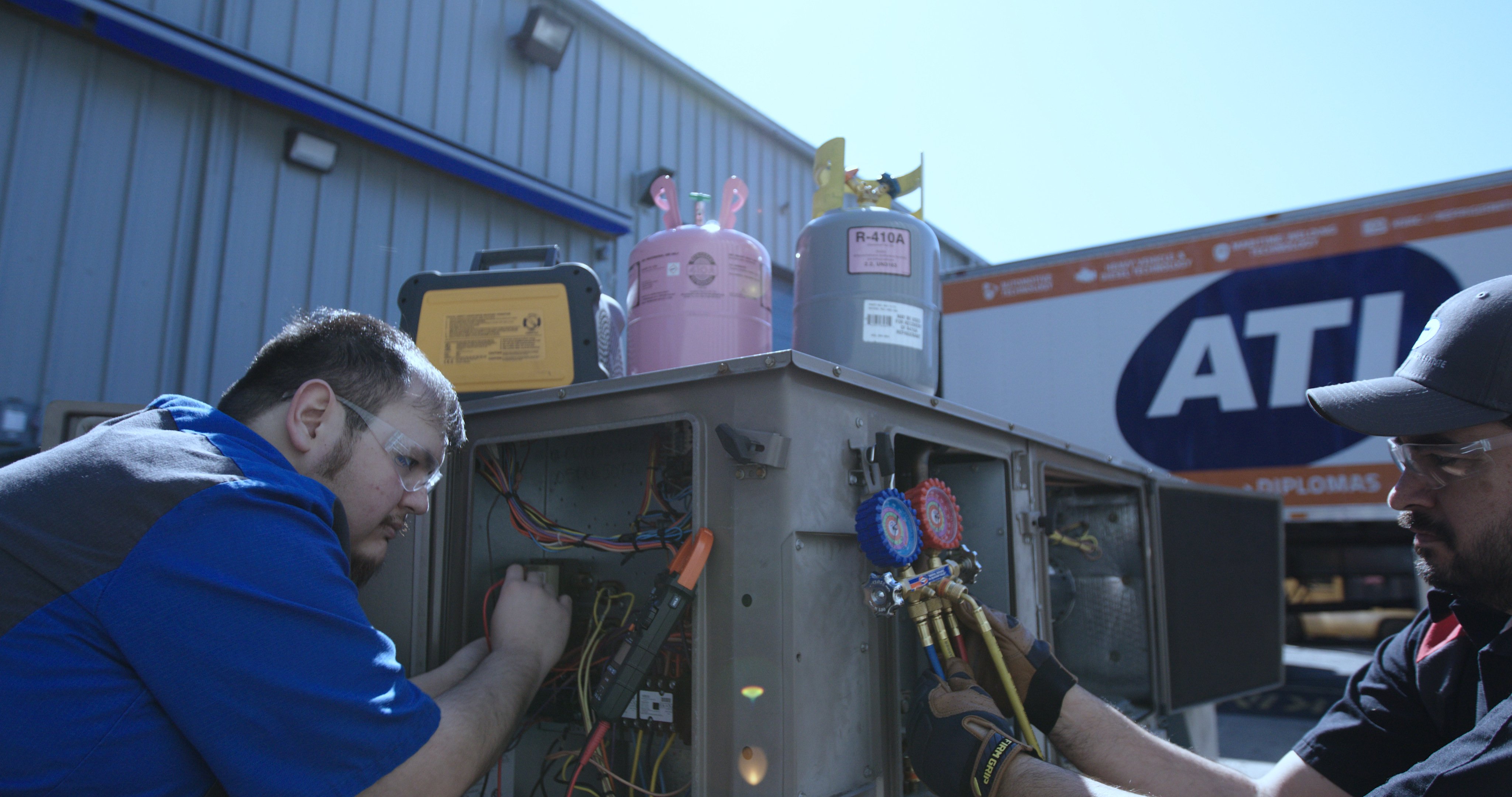What is the Best Mechanic Certification?

Hey there, fellow car enthusiasts! Let's rev up the engines and dive into the world of automotive expertise. Cars are becoming increasingly complex, requiring specialized skills beyond basic maintenance. ASE certifications are the gold standard, proving your expertise to customers and employers alike. What
What is the Best Mechanic Certification?
The best mechanic certification is ASE (Automotive Service Excellence). It's the industry standard, recognized by customers and employers alike for proving your expertise in automotive repair and maintenance.
Education is key to getting started in this field. Programs like those offered by the Advanced Technical Institute provide a mix of classroom learning and hands-on experience. With passion for cars and a drive to succeed, you'll be cruising toward your goal in no time! Here's how you can become a certified ace in the auto repair game:
The Core 8 Certifications:
- A1 Engine Repair
- A2 Automatic Transmission/Transaxle
- A3 Manual Drive Train and Axles
- A4 Suspension and Steering
- A5 Brakes
- A6 Electrical/Electronic Systems
- A7 Heating and Air Conditioning
- A8 Engine Performance
Achieving these certifications isn't just about changing oil or swapping tires; it's about understanding every nook and cranny of a vehicle. The Core 8 certifications cover everything from engines to brakes, steering to air conditioning. Think of them as your toolkit for fixing up any four-wheeled friend that rolls into your shop.
After mastering the Core 8, you can pursue the ASE Masters Certification, demonstrating comprehensive knowledge and expertise. It's a valuable badge of honor for any mechanic's resume.
But it doesn't stop there. Secondary certifications allow you to specialize and stay sharp with additional skills. Manufacturer certifications, offered by car manufacturers, provide in-depth training on specific brands, giving you an edge in servicing particular vehicles.
.jpg?width=768&height=554&name=ATI-Auto-022720-%20(15).jpg)
Secondary Certifications
Secondary Certifications play a crucial role in advancing your career as an automotive technician once you've mastered the Core 8 and achieved the coveted ASE Masters Certification. Here's a deep dive into what Secondary Certifications entail:
After conquering the Core 8 certifications and earning your stripes as an ASE Master, you're ready to delve into the world of Secondary Certifications. These certifications are the next step in the ASE pipeline, offering a plethora of specialized knowledge and expertise to further hone your skills.
Refresh Your Knowledge:
One key aspect of Secondary Certifications is the opportunity to refresh your accreditation on the core lessons you've already mastered. ASE requires re-certification every five years to ensure that mechanics stay up-to-date with the latest advancements in automotive technology and best practices.
Specialize and Diversify:
Secondary Certifications offer a wide array of options, from specialized service types to specific vehicle makes. There's no definitive list of which certifications to pursue; instead, it's about tailoring your expertise to meet the demands of the market and enhance your resume.
For instance, if you're eyeing a position at a company specializing in large diesel vehicles, certifications like E1-E3 (Truck Equipment Installation and Repair) could give you a competitive edge. Conversely, if you're aiming for a shop that focuses on AC repairs, certifications covering a broad range of vehicles' air conditioning systems would be advantageous.
Enhance Your Employability:
The more Secondary Certifications you accumulate, the more attractive you become to prospective employers. These certifications not only demonstrate your technical prowess but also showcase your commitment to continuous learning and professional development. A diverse skill set makes you a valuable asset in any automotive setting, from independent repair shops to dealership service centers.
Ultimately, Secondary Certifications are a strategic investment in your career, allowing you to specialize, diversify, and stay ahead of the curve in the ever-evolving automotive industry. So, seize the opportunity to bolster your expertise and position yourself as a top-tier automotive technician!
Manufacturer Certifications
Manufacturer Certifications offer a specialized path for automotive technicians looking to elevate their expertise and excel in servicing specific car brands. Here's a closer look at what Manufacturer Certifications entail:
Mastering Brand-Specific Expertise:
Just like any piece of technology, being intimately familiar with a particular vehicle brand makes you better equipped to handle its repair and maintenance. Manufacturer Certifications provide in-depth training and certification programs tailored to the intricacies of each brand's vehicles.
Varied Requirements:
The requirements to earn Manufacturer Certifications can vary significantly between manufacturers. However, they typically involve a combination of additional courses and hands-on experience working on the manufacturer's vehicles. These certifications are designed to ensure that technicians possess the specialized knowledge and skills necessary to deliver top-notch service.
Navigating Brand-Specific Training:
Manufacturer Certification programs delve into the nuances of a particular brand's vehicles, covering everything from diagnostics to repair procedures. Whether it's mastering the intricacies of German engineering or understanding the cutting-edge technology in electric vehicles, these programs equip technicians with the expertise needed to excel in their craft.
Elevating Your Credentials:
Earning Manufacturer Certifications not only enhances your technical skills but also boosts your credibility as a specialist in servicing specific car brands. Whether you're working at a dealership or an independent repair shop, these certifications demonstrate your commitment to excellence and your ability to deliver superior service to customers.
Expanding Your Opportunities:
With Manufacturer Certifications under your belt, you open doors to new opportunities in the automotive industry. Whether you're seeking advancement within your current role or exploring new career paths, specialized expertise in a particular brand can set you apart from the competition.
Manufacturer Certifications are a valuable investment in your career, offering the opportunity to deepen your knowledge, expand your skill set, and unlock new career opportunities in the dynamic world of automotive repair and maintenance.
The First Step is a Good Education
Comprehensive Training:
Completing any of the certifications on the list requires a blend of secondary training on automobiles and hands-on experience. The journey toward becoming a certified automotive technician involves mastering both the theoretical knowledge and practical skills necessary to excel in the field.
AOS Degree Program:
The Automotive Technology with Service Management (AOS Degree) offered by Advanced Technical Institute is designed to provide aspiring technicians with a comprehensive education that sets trainees up to enter the automotive industry. This program combines academic coursework with practical, hands-on experience to prepare students for the challenges of the automotive industry.
Achieving Your Goals:
The AOS Degree program not only equips students with the skills needed to obtain their first ASE Masters Certification but also instills the confidence and knowledge to thrive in the workplace. Whether you're diagnosing engine problems or performing complex repairs, the education you receive prepares you for the rigors of the job.
Education and Drive:
With a solid educational foundation and a passion for the automotive industry, the path to certification becomes more attainable. As you immerse yourself in the coursework and gain practical experience, you'll find that the certifications start piling up naturally. Your dedication to learning and your commitment to excellence will be reflected in the quality of your work.
Investing in education is the first step toward a rewarding career as a certified automotive technician. With the right training and determination, you'll be well-equipped to tackle any challenge that comes your way and thrive in the dynamic world of automotive repair and maintenance.
Ready to jumpstart your career? Enroll in ATI auto mechanic school today and lay a strong foundation for your future.
Industry Knowledge
Welcome to the Advanced Technology Institute's Blog, your resource for industry insights and discussions on technologies shaping the future of automotive, heavy vehicle, hvac, welding, and other related career paths.
Explore how ATI's curriculum and hands-on learning opportunities can propel your career in the tech-driven world.


